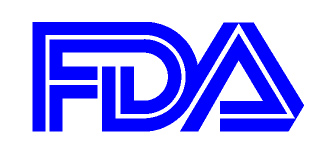FDA Principal Deputy Commissioner Joshua M. Sharfstein, M.D. gave the keynote speech to the Council for Responsible Nutrition Conference. Dr. Sharfstein expressed a willingness to work with supplement industry members and received a warm welcome from industry members in return.
Sharfstein filled in at the last minute when Commissioner Margaret Hamburg, M.D. was called before the Senate Committee on Health, Labor, Education and Pensions to testify at a hearing entitled “Keeping America’s Families Safe: Reforming the Food Safety System.”
Dr. Sharfstein started off by noting that FDA products account for $.20 of every $1.00 spent by Americans. As to supplements, he revealed that he (like me) suffers from lactose intolerance and supplements with lactase enzyme.
Beyond the pleasantries, Sharfstein focused his speech on regulatory concerns with specific types of products and what FDA is doing currently to address these concerns. Sharfstein pointed specifically to FDA successes in addressing products promoted for treating H1N1 flu, adulterated muscle enhancers containing anabolic steroids, and male enhancement supplements containing erectile dysfunction drug analogues.
Sharfstein also addressed suggestions that one way regulate adulterated supplements is through the NDI process. Under DSHEA, ingredients that were in the food supply prior to October of 1994 are grandfathered in, but those that were not and require new dietary ingredient (NDI) applications. However, as Sharfstein noted, there is no FDA recognized list of grandfathered supplement ingredients at present, and also many supplement products often contain undeclared ingredients which makes an approach that depends upon examining labels fundamentally flawed. As a result, Sharfstein declared that new ingredient premarket verification is a priority for FDA. With these and other challenges Sharfstein expressed a sincere willingness to work with industry to improve FDA response and regulatory strategies.
Sharfstein did receive several probing questions including a challenge regarding the FDA’s handling of the recent Hydroxycut recall, something we at NutriSupLaw have previously questioned several times. The questioner noted that Hydroxycut was recalled based upon just 23 reports of liver disease out of over 20 million units of Hydroxycut sold, and asked Sharfstein for a the scientific basis of the FDA’s action. The questioner also noted that the panel that raised concerns with Hydroxycut failed to identify a specific ingredient in the product that caused the problems, and there are many products still on the market today that contain those same ingredients.
To his credit, Sharfstein did not simply “toe the party line” on this issue in his response. Instead he observed “I am getting the sense that there is a lack of understanding in this room about why the FDA did this,” and he went on to suggest that FDA reevaluate the matter and hold a conference call with industry to discuss it further.
Let’s see if FDA comes through and works with industry on these efforts.




Food supplements are very much criticized nowadays, and with good reason. People seem to ignore the dangers they expose themselves to by taking all these products, multivitamins or other substances.